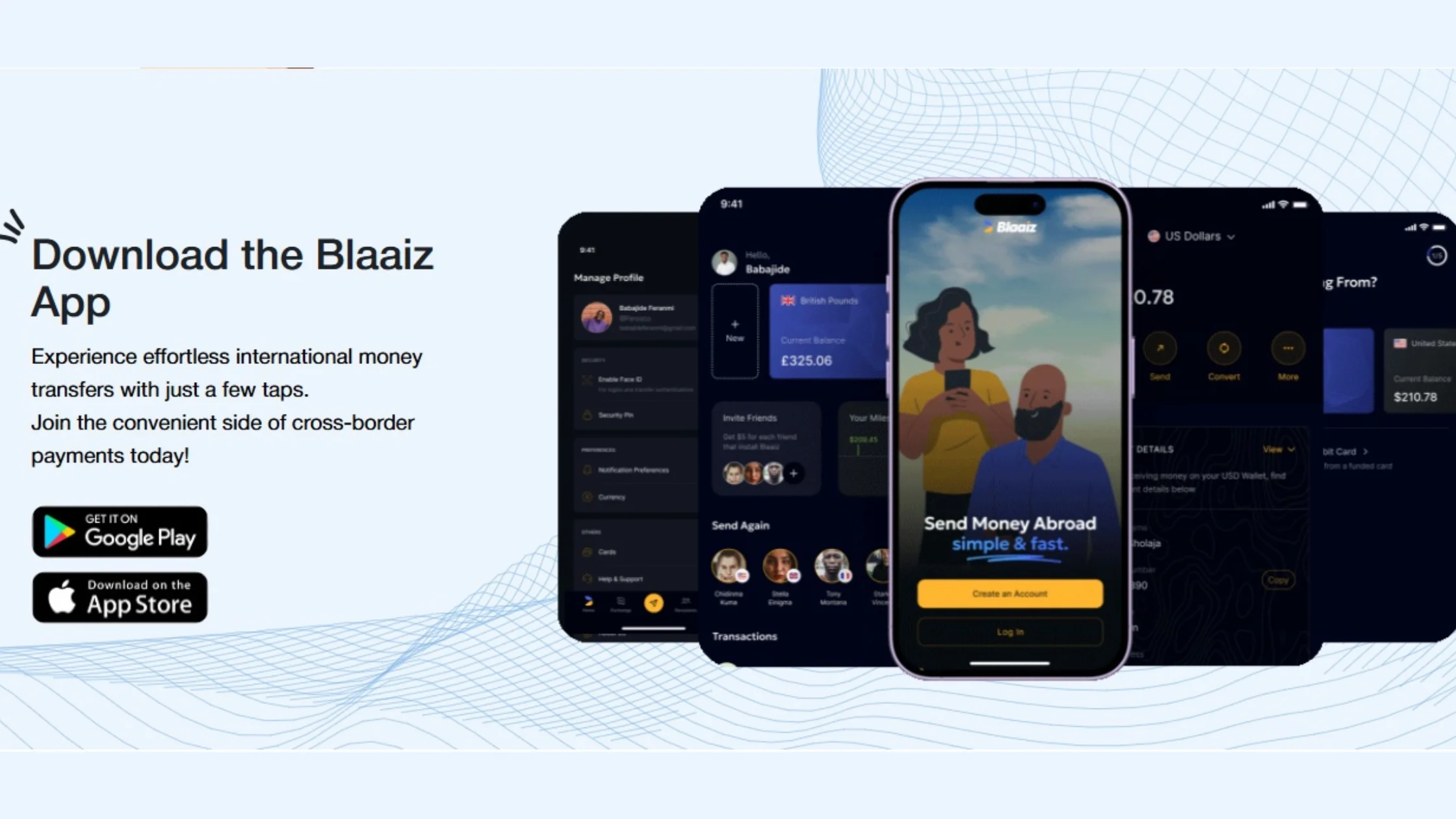In a rapidly evolving financial landscape, cross-border transactions remain one of the biggest challenges for Africans, both on the continent and in the diaspora. Enter Blaaiz, a fintech company that is redefining global remittances and financial access for Africans worldwide.
Founded by Ife Ayodele, a finance and fintech expert with experience spanning Accenture, banking, venture capital, and private equity, Blaaiz is more than just a remittance company—it’s a financial gateway connecting Africa to the world.

With offices in Lagos, Ghana, and Canada, Blaaiz is uniquely positioned to address the liquidity, accessibility, and regulatory challenges that have long plagued African cross-border transactions.
“We’re not just facilitating payments. We’re building the infrastructure that enables Africans to fully participate in the global economy—whether it’s through remittances, business payments, or financial inclusion tools,” says Ife.
The Problem: Why Cross-Border Payments Remain a Challenge
For decades, sending and receiving money across Africa has been costly, slow, and restrictive. Despite the rise of fintech solutions, major hurdles remain:
- Regulatory Barriers – With over 42 different currencies across Africa, fragmented regulations make seamless payments difficult.
- High Transaction Costs – Many remittance providers charge excessive fees, eating into users’ earnings.
- Limited Financial Infrastructure – Many Africans, especially SMEs and freelancers, struggle to get paid in stable currencies like USD, GBP, or EUR.
- Trust and Security Issues – Fraud and anti-money laundering (AML) concerns often lead to delays in international transactions.
Ife’s journey through banking, fintech, and consulting gave him first-hand exposure to these challenges, leading him to develop Blaaiz as a truly borderless, flexible solution.

Blaaiz’s Key Differentiators: More Than Just Remittance
Unlike other fintech platforms, Blaaiz is not just a remittance service—it’s a full-fledged financial ecosystem designed to give Africans more control over their money.
1. Multi-Currency Accounts for Africans
Most fintechs only enable users to send and receive money—but Blaaiz goes further by providing GBP, USD, and EUR accounts for Africans, enabling them to get paid globally and transfer money seamlessly.
“Most remittance companies only let you send money to Africa, but what about getting paid as an African? Blaaiz solves this by providing international accounts so that Africans can receive payments from businesses worldwide,” Ife explains.
2. Purposeful Remittance: Moving Money with a Mission
Blaaiz is pioneering a new model of remittance that goes beyond simply sending money home. Through its Purposeful Remittance feature, users can send funds directly to:
- Healthcare payments for family members
- Education fees for students
- Small business capital to support entrepreneurs
This ensures that money sent is used for its intended purpose, eliminating the risks of misallocation or misuse.
3. Financial Inclusion Through Partnerships (Not Direct Microloans)
While Blaaiz does not offer direct microloans, it plays a crucial role in helping businesses access financing by providing guarantees and data-driven insights to international financial partners.
Through strategic collaborations, Blaaiz helps SMEs establish creditworthiness, improving their chances of securing microloans, business financing, and better financial services.
“Access to finance is one of the biggest barriers for African entrepreneurs. By leveraging the data we collect on transactions and business activity, we can help our users get better access to funding through partnerships,” Ife explains.
4. A Crypto-Enabled Future
Blaaiz is forward-looking when it comes to digital finance, with plans to integrate crypto-based solutions that improve liquidity across African markets.
“Crypto eliminates the inefficiencies of traditional financial systems. It’s a powerful tool for intra-African trade, ensuring faster, cheaper, and more inclusive transactions,” says Ife.
Challenges: What’s Holding African Fintech Back?
Despite its innovative solutions, Ife acknowledges that Blaaiz—like all African fintechs—faces significant industry-wide challenges:
1. Regulatory Hurdles
With no unified regulatory framework across Africa, fintechs must navigate complex licensing and compliance requirements in each country.
2. Currency Liquidity & Stability
Africa’s currency fluctuations and lack of standardization create operational challenges for fintechs trying to provide cross-border financial services.
3. Trust & AML Compliance
Many regulatory bodies mistrust fintechs, believing some use financial licenses just to raise venture capital, rather than to create real solutions.
“We’re taking the long route—building regulatory relationships, securing the right licenses, and ensuring compliance across multiple jurisdictions,” Ife states.
Vision: The ‘Revolut for Africa’
Blaaiz is not stopping at remittance. Over the next few years, its roadmap includes:
- Expanding its crypto-enabled financial solutions
- Enhancing B2B payment services for SMEs
- Strengthening purposeful remittance options for healthcare, education, and businesses
With offices in Nigeria, Ghana, and Canada, Blaaiz is well-positioned to reshape financial access for Africans globally.
“Our goal is to be the fintech that truly serves the upwardly mobile African—whether they’re on the continent, in the diaspora, or simply doing business internationally,” says Ife.
A Fintech to Watch
Blaaiz is proving that financial inclusion is more than just a buzzword—it’s a necessity. By bridging the gap between African financial systems and the global economy, the company is empowering individuals, businesses, and communities.
With regulatory hurdles, market fragmentation, and currency volatility still presenting challenges, Blaaiz’s ability to adapt and innovate will determine its long-term success.
But one thing is certain: Africans deserve a seamless, inclusive financial system—and Blaaiz is on a mission to build it.














